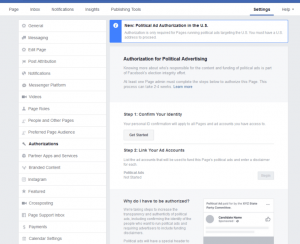Hybrid work boosts productivity and reduces isolation, researchers say
Balancing both office and remote work presents the most promising path forward.
New Zealand Prime Minister Christopher Luxon sparked debate on the future of work in his ountry this week when he ordered public service employees back to the office.
But Luxon’s edict neglects a broader transformation in work culture.
Work from home (WFH) arrangements have grown considerably over the past decade, propelled by an increase in dual-income households and rapid technological advancements.
The COVID pandemic acted as a catalyst for further change, proving that many jobs could successfully be performed remotely.
Our upcoming article in the New Zealand Journal of Employment Relations addresses the pros and cons of remote work. We highlight how a hybrid model—mixing days in the office with days working from home—can improve well-being, engagement, and productivity.
We found embracing a hybrid approach may lead to better outcomes as society shifts with technology and employment expectations. And, despite the prime minister’s demands on public service workers, it may be too late to go back.
Embracing flexibility
Under current rules, employees can request flexible working arrangements. Employers must provide valid reasons if they decline the request.
According to a 2023 survey from Human Resources New Zealand, 40% of HR professionals noted productivity gains as a critical advantage of WFH arrangements.
And some professional organizations have embraced work from home or hybrid work arrangements.
The New Zealand Law Association, for example, has emphasised the significant benefits of flexible work for their members, including increased employee engagement, productivity, and overall well-being.
A report from Te Kawa Mataaho Public Service Commission noted the public service’s success in delivering quality services during the pandemic while working remotely.
The commission’s current guidance on hybrid work arrangements supports flexibility that allows working from home to focus and working together when necessary.
Does WFH reduce efficiency?
Luxon argues forcing workers back to the office will promote efficiency. But there is little evidence suggesting New Zealand’s productivity has significantly declined with WFH or hybrid arrangements.
Instead, we found office-only arrangements risked introducing new inefficiencies for the government. These included new layers of permissions and reporting on arrangements that have already been agreed to.
The assumption that office work suits everyone is also contradicted by experiences during and after COVID.
During the first year of the pandemic, many workers felt the void of casual interactions that once sparked creativity. They also struggled with isolation. This was especially pronounced for caregivers, often women, who had to juggle professional duties with increased childcare responsibilities.
Despite this, a University of Otago survey conducted during the pandemic noted 67% of participants preferred a hybrid work model.
Many expressed optimism regarding remote work’s continuation, with significant portions reporting stable or increased productivity, although some struggled with home distractions.
And our research found taking a hybrid approach to work—with one or more days at home—reduced the risks from professional and social isolation and improved collaboration.

Opportunities to work at home some of the time also allowed time for focused work, reduced commuting time and improved well-being.
Boosting productivity from home
Luxon’s assertion that working from home is “not an entitlement” aligns with traditional views on work. These include the belief that time at a desk is a measurement of productivity, rather than measuring the outcomes from work.
However, a growing body of evidence indicates remote work can elevate both productivity and employee satisfaction.
Eliminating daily commutes allows employees to redirect time toward focused work, positively impacting job satisfaction and mental well-being.
Moreover, remote work fosters inclusivity, enabling organizations to source talent from a broader geographic area, which in turn enhances diversity and innovation.
A report from McKinsey & Company found businesses adopting flexible work arrangements are better positioned to navigate future uncertainties, sustaining or even boosting productivity.
A survey by the Australian Council of Trade Unions exploring WFH revealed nearly 48% of participants experienced enhanced productivity, attributed in part to the elimination of commuting.
However, it also highlighted challenges. Some 40% of respondents said they were facing longer work hours, which can lead to burnout. Addressing these issues is essential to maintaining employee well-being.
The future of work
Instead of enforcing strict office attendance, leaders should adapt to the changing work landscape.
Promoting flexible arrangements can foster a more productive and engaged workforce, ultimately benefiting New Zealand’s public service in today’s dynamic environment.
Balancing both office and remote work presents the most promising path forward.
Stephen Blumenfeld is a director at the Centre for Labour, Employment, and Work at Te Herenga Waka—Victoria University of Wellington.
Chris Peace is a lecturer in occupational health and safety at Te Herenga Waka—Victoria University of Wellington.
Joanne Crawford is a Worksafe New Zealand chair in health and safety at Te Herenga Waka—Victoria University of Wellington.
Roya Gorjifard is a doctoral candidate at the School of Health at Te Herenga Waka—Victoria University of Wellington.
This article is republished from The Conversation under a Creative Commons license. Read the original article.
ABOUT THE AUTHOR
(2)
Report Post







